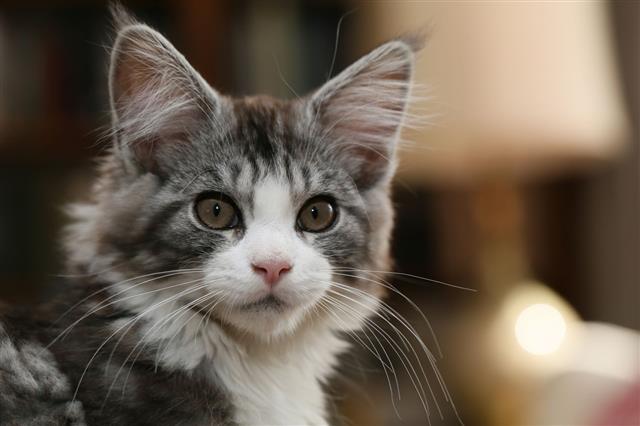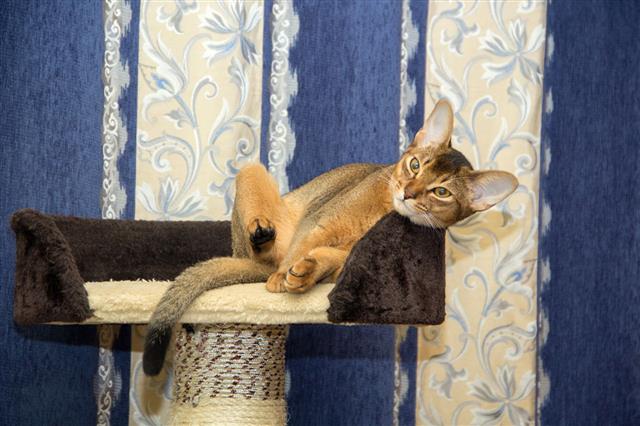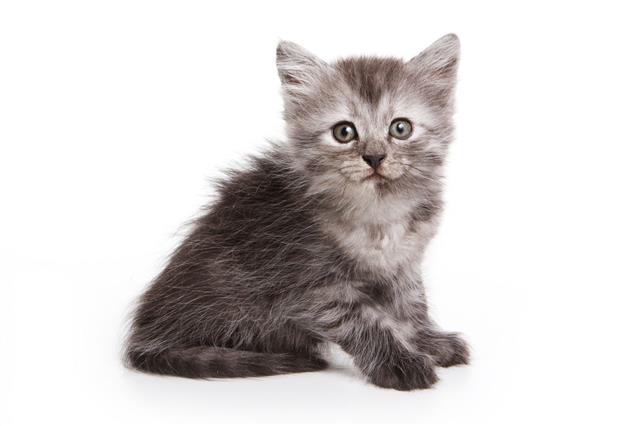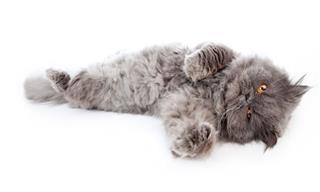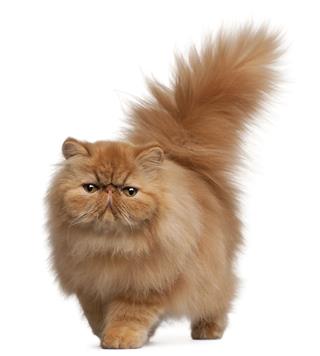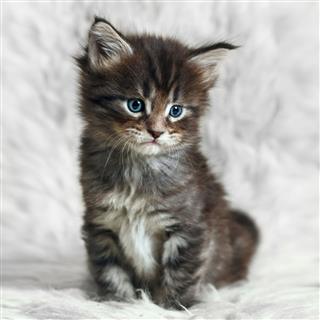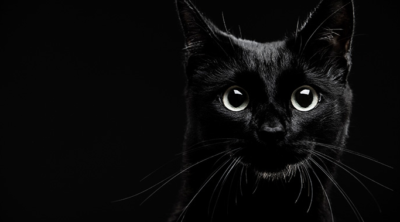
Though sneezing in cats is more commonly caused by allergies, sometimes, it can be related to certain serious health conditions as well. Read this article to know more about the causes and diagnosis of this condition.
Did You Know?
A single sneeze can travel at the speed of about 100 miles per hour, and send out approximately 100,000 germs into the air.
As a pet owner, it is quite normal to worry about your cat’s health. So, when your adorable kitty begins to sneeze all of a sudden, you may find yourself trying to figure out whether it is natural for her to sneeze like that, or it is a sign of some underlying health problems.
Like humans, cats also sneeze regularly, whenever their nasal cavity is irritated by an irritant or allergen. So, it is completely normal if your cat sneezes once in a while. But if she is sneezing frequently for a prolonged time period, and if sneezing is accompanied by some other symptoms, like nasal and eye discharge, then it might be a cause of concern. In such a situation, you should visit a veterinarian for a definitive diagnosis. But before going into the details of cat sneezing diagnosis, let’s find out some more information about its causes.
What Causes Sneezing in Cats?
Allergies
If your cat sneezes occasionally, especially when you are cleaning the house, then it is most probably caused by an irritant or allergen. Substances like dust or smoke can irritate the mucous membrane of the nasal passage, and so, sneezing can be a natural reaction to expel them.
Cats can be allergic to a lot of substances, such as dust, mold, pollen, cigarette smoke, perfumes, sprays, and a number of cleaning products. They can sneeze a lot, whenever they come in contact with such irritants. The Persian cat breeds, and cats with a flat face and constricted nasal passage can be more susceptible to sneezing, when exposed to such environmental allergens.
Infections of the Upper Respiratory Tract
Incessant sneezing accompanied by nasal and eye discharge can be caused by an infection of the upper respiratory tract. Feline upper respiratory tract infections can be caused by both bacteria and virus. More commonly, they are caused by adenovirus and parainfluenza virus.
Viral Infections
Feline herpes virus can also be responsible for causing sneezing. This viral infection is characterized by intermittent periods of flare-ups and remissions. Herpes virus can cause infections of the upper respiratory tract and lungs. Though cats of all ages and breeds can get this viral infection, flat-faced cats, such as Persian or Himalayan cats are more prone to develop the severe symptoms associated with the infection. Along with herpes virus, feline calicivirus can also cause respiratory diseases in cats. This virus can infect the deep pulmonary tissues.
Tooth Abscess
Another possible cause of sneezing, which often goes unnoticed is dental problems, like a tooth abscess. Many times, a tooth abscess caused by an infection can enter and irritate the nasal cavity, and thereby compel the affected cat to sneeze a lot.
Other Causes
Some other possible conditions that can cause sneezing in cats are:
✧ Nasal polyps
✧ Foreign objects in the nasal passage (grass seeds)
✧ Fungal infections
✧ Sinus infections
✧ Nasal cancer
Diagnosis
» Veterinarians suspect an underlying health problem, only when sneezing is continuous and frequent. They perform a physical examination of the affected cat, and evaluate her medical history to find out the root causes. Sometimes, sneezing can be accompanied by some other symptoms, which can also provide crucial information regarding the underlying health condition. Symptoms that are more commonly observed along with sneezing are:
✧ Eye discharge and swelling
✧ Nasal discharge, which can be clear, yellow, or green in color
✧ Drooling
✧ Loss of appetite
✧ Cough
✧ Wheezing
✧ Breathing problems
✧ Diarrhea
✧ Poor coat condition
✧ Lethargy
» If sneezing is occasional, and it is accompanied by wheezing, runny nose, itching (face or paw rubbing), swollen eyes, and breathing problems, then it can be caused by allergies. But sneezing and coughing, accompanied by the presence of mucus, breathing difficulty, swollen glands and eyes, and fever are more likely to be associated with an episode of upper respiratory tract infection.
» Veterinarians also examine a sample of nasal discharge of the cat, if it is present. A clear nasal secretion can be a sign of allergies, while a yellow or green-colored nasal discharge can be caused by a bacterial infection. The presence of a bloody nasal discharge on the other hand, may be an indicator of fungal infections or nasal cancer.
» If dental problem is responsible for causing sneezing, then one can smell a bad odor in the mouth of the affected cat. If such a foul odor is present, then veterinarians look for swollen gums or a tooth abscess.
» Along with a physical examination, some diagnostic tests may also be employed by the veterinarians for identifying the nature and cause of sneezing in cats. The tests and examinations that are generally carried out for this purpose are:
✧ Microscopic examination of the nasal secretion
✧ An examination of the nasal passage (Rhinoscopy)
✧ Bacterial culture of the nasal secretion
✧ Fungal serology
✧ X-ray and CT scan
✧ Platelet count (if blood is coming out from the nostrils)
Treatment
» Treatment for sneezing depends on the underlying causes. If allergies are the main cause, then the best treatment is to identify and remove the particular allergen from the surrounding. Sometimes, drugs like antihistamines and steroids may be required to treat allergies in cats, especially when the symptoms become really troublesome.
» The best way to protect your cat from viral infections is to get her vaccinated. But, if your cat has already been infected, then make sure that she does not get dehydrated. Also, be sure to remove the nasal discharge from time to time, so that your cat can breathe easily.
» If the viral infection is accompanied by fever and excessive cough, then consult a veterinarian to find out what medications can be used for alleviating these symptoms. In case of feline herpes, supplementation of l-lysine can provide some relief. Veterinarians may also prescribe antiviral medications to treat the symptoms of feline herpes.
» Antibiotics are the preferred option to treat bacterial infections, while for a fungal infection, antifungal drugs are required. Sneezing caused by dental problems usually resolves on its own, with the treatment of that specific problem. So, if a tooth abscess is responsible for causing excessive sneezing in cats, then it will resolve with the removal of that particular tooth.
» For mild sneezing, you can use a humidifier. If your cat is congested, you can use a nasal decongestant and vaporizer, which help clear-up the nasal passage and the sinuses.
» Surgery may need to be performed, if excessive sneezing is associated with nasal polyps. Treatment of nasal cancer on the other hand, can require surgery, chemotherapy, and radiation therapy.
If your cat is sneezing a lot for a long time, and if it is also accompanied by the aforementioned symptoms, then it is better to seek medical attention. Only a veterinarian could properly evaluate this condition, and treat it accordingly. Another important point to note is that upper respiratory tract infections in cats call for immediate veterinary supervision, as such infections can lead to life-threatening complications at times.


